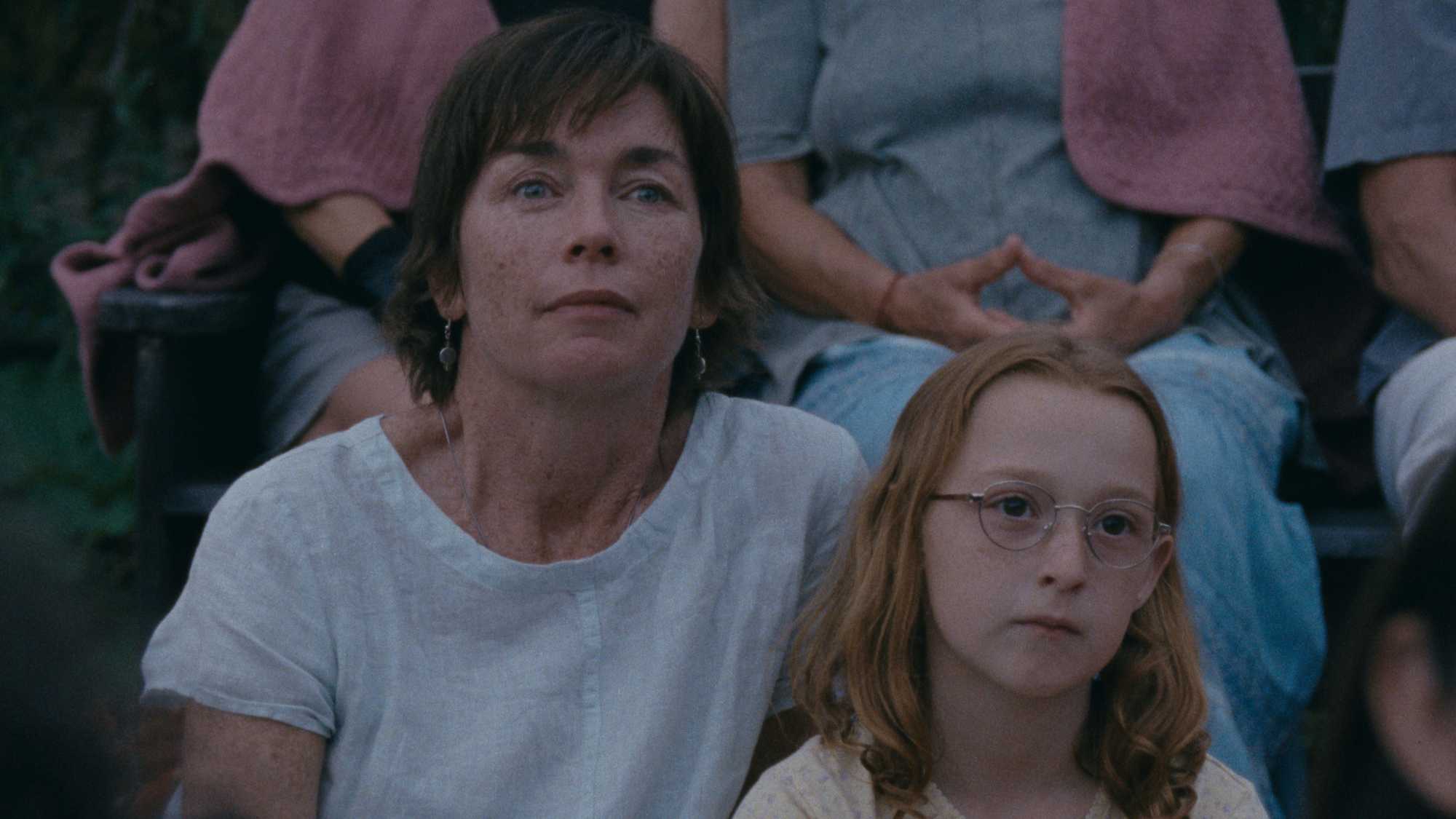Acclaimed playwright Annie Baker ruminates on the evolving relationship between an 11-year-old misfit and her single mother during the summer holidays in this intimately observed debut feature.

Baker’s tingling delicacy of touch makes it a subtly distinctive experience: it’s a film I already looked forward to revisiting while tiptoeing through it the first time.
Screened as part of 2024
Janet Planet 2023
Being just the two of them for so long has lent a certain codependency to the relationship between 11-year-old misfit Lacy (Zoe Ziegler) and her acupuncturist single mother Janet (Julianne Nicholson, Monos, NZIFF 2019). It’s 1991, the summer holidays between fifth and sixth grade, and Lacy isn’t yet searching for independence. If anything, she’s clinging onto her closeness with her mother, still wanting to share a bed, even as Janet resists.
Piano lessons and trips to the local mall punctuate a long, lazy Massachusetts summer where Lacy is forced to contend with the presence of those Janet invites into their lives – migraine-prone boyfriend Wayne (Will Patton, Meek’s Cutoff, NZIFF 2011), old friend Regina (Sophie Okonedo), and charming commune leader Avi (Elias Koteas, The Killer Inside Me, NZIFF 2010). In lieu of friends her own age, Lacy spends time alone in her imagination, or diligently studying the adults in her life. As director Annie Baker puts it, Janet Planet is “a story about falling out of love with your mother.” Lacy is trying to understand what it is that pulls people into her mother’s orbit, and in turn, prepare for her own looming womanhood. Over the course of the summer, Lacy comes to comprehend that her mother is not someone who exists solely in relation to her – she is her own imperfect, unhappy, sexual being – a jarring realisation that irrevocably fractures their bond.
Baker made the jump to debut filmmaker from an acclaimed career as a playwright, the same trajectory taken in recent years by Celine Song (Past Lives, NZIFF 2023) and Tina Satter (Reality, NZIFF 2023). In 2014, Baker won the Pulitzer Prize for her play The Flick, about three underpaid ushers at a rundown picture house, and in 2017 she was named a MacArthur Fellow. In Janet Planet, as in her writing for the stage, Baker has a keen ear for what is said and unsaid. Her dialogue is wry and naturalistic, and her direction is emotionally precise – even her sound design is nostalgic. It’s a film observed in intimate detail, shot on lush 16mm film, with glances and gestures that reverberate long after the credits roll. — Amanda Jane Robinson
“Though there’s always been more than a hint of the cinematic in Baker’s theatre career, she re-arrives fully formed as a film artist, with a developed and stunningly self-assured visual language bolstered by unhurried confidence behind the camera. This is not just one of the great films of its year, but one of the finest first films in the annals of the medium.” — Charles Barmesco, Little White Lies